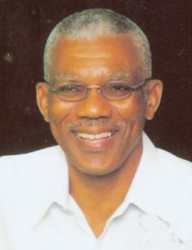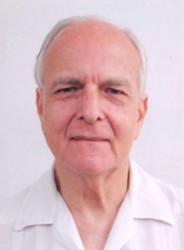“In discussing our contemporary shambles, almost every visitor to this country ultimately comes round to asking about local publications of the nature of this one. And when the answer is given that there is none, the visitor’s shoulders slump and he quickly changes the subject, afraid, perhaps, of saying something uncharitable.Life in a country as materialistic and philistine as B.G. soon blunts the edge of the mind. The almost fanatical pre-occupation with hollow issues,


the gossip-mongering which passes for conversation and the inevit-able political hysteria, leave little time for the serious examination of ideas. I know that the psychological squalor of everyday life is exhausting. I know that the urgent practical problem of making a living comes first. What I do not know is why only so few revolt, either by word or by deed, against such acute spiritual discomfort”.
This is an extract from a letter by Martin Carter published from a letter by Martin Carter published in the first issue of the New World Fortnightly magazine in November 1964. Publishers of magazines, especially small ones, are a permanently endangered species. Some die, as the New World Fortnightly did in 1966, but others rise to take their place. The current keeper of the shrine is Mr. David Granger who has been publishing the Guy-ana Review for several years. It is now a well-established monthly magazine. The December 2000 issue, tightly and crisply edited, had a wealth of interesting articles on politics, the economy and society and served as a reminder of the valuable role a magazine can play.
Among the many interesting features, the magazine chose four women of the year. The first was Pamela Fernandes, the widow of Bunny Fernandes, the recipient of an award from Pope John Paul II for 28 years as a catechist,
instructing children in the Roman Catholic faith, long active in charitable work and trained to work with the terminally ill. The second was Yvonne Pearson, one of the four female Toshaos (chiefs) of Amerindian villages and an executive member of the Amerindian People’s Association. The third was Roxanne George, acting Deputy Director of Public Prosecutions and Vice-President of the Guyana Association of Women Lawyers who edited the well-known booklet: ‘The law and you’, participated in the drafting of the Domestic Violence Act, and prepared a report on the ‘Legal Status of Women in Guyana’. The fourth was SonitaJagan, General Manager-Chief Executive Officer of Guyana Telephone and Telegraph Co. Ltd., one of the women to blaze a trail in business circles here. It was a timely reminder of the increasing role women play in so many areas.
It is more than encouraging that we are still capable of producing a magazine of this quality. One has a good idea of the hard work and discipline involved in getting it out each month. It is now a familiar part of the publishing scene and one hopes Mr. Granger will continue to find the strength and the energy to keep it going.





